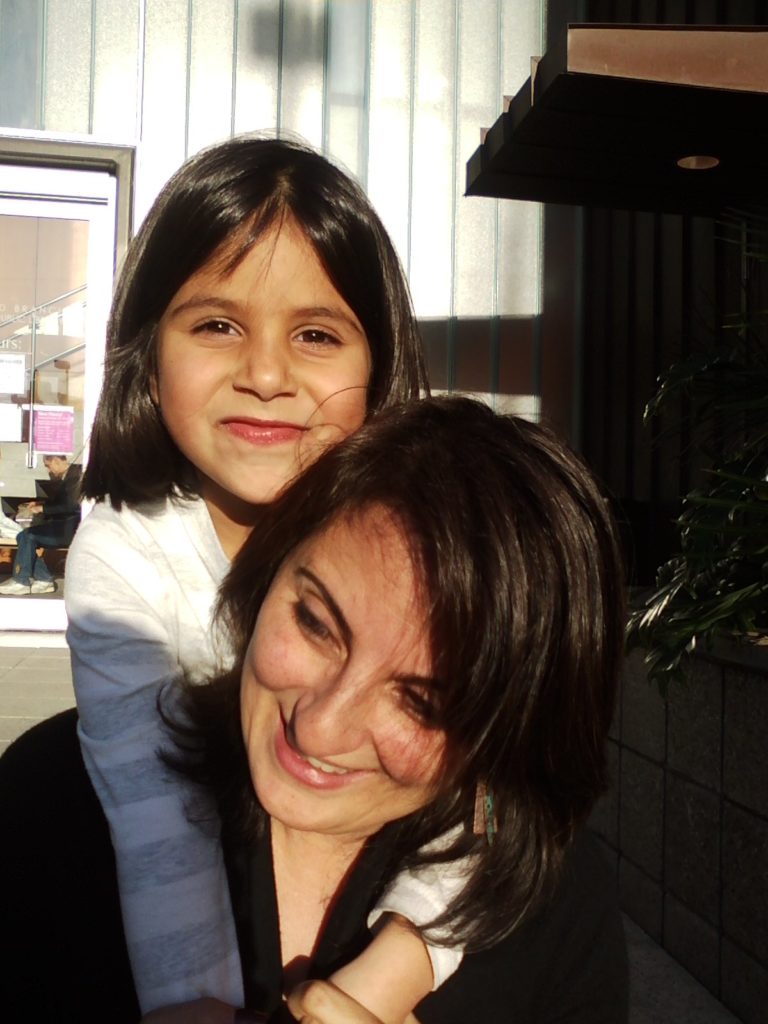Between seeing clients at the office, starting a new teaching position and being a full-time mom, I was finding myself too preoccupied and distracted at home last week. My oldest daughter came up to me one afternoon and asked me if I would play with her. I responded, “Sure how about later.” But later did not come. I continued to be preoccupied for the rest of the evening. The next day she came up to me and brought her paint set and asked me if I would paint with her. I found myself telling her again, “Sure later.” Well, later never came. I honestly forgot about her request and what I had promised her twice in a row.
People often ask me what is the difference between traditional versus conscious parenting. I would say that the main difference between the two is that in conscious parenting you are always in a position of self reflecting on what kind of parent you are being both to your children and to yourself. So essentially, being a conscious parent means taking time to self reflect and think about what is working and what is not for you and your family as you move through the difference developmental stages of your child’s life.

Founder and Spiritual Director
www.centeronpeace.com
www.centerpeaceproject.com
310-498-3573
The practice of self reflection also helps you develop compassion both for yourself as a parent and for your children. For those of you parents out there, you know that parenting is probably one of the most difficult jobs you’ve ever held and making mistakes and not getting it right is a big part of this path. In my own years of practice, I’ve learned to be more gentle and compassionate with myself when I make mistakes. After self reflecting on the interaction between myself and my daughter, I came to immediately realize how dismissive I had been of her need to engage with me in a meaningful way. Normally, this is where I would be riddled with feelings of self blame and guilt. But the good news is that after so many years of a mindfulness practice, I have learned to quickly move beyond self judgment and to instead recreate further closeness and bonding in spite of my “mistakes.”
But also developing compassion for your child or your children means accepting the fact that they are not perfect or that they did not turn out to be the children you had envisioned or hoped to have. Rather, they have come to this world as totally different individuals with their own unique characteristics and personality. Your children may have very different traits from you and sometimes this difference is really hard for parents to accept. Having compassion for yourself, allows you to become more accepting and tolerant for what is not perfect in you or in your children.
The next day, I went ahead and took out the paint set before she got home from school, set it up on the dining room table and after she got home, I told her tonight we were going to paint together. The smile that lit up her face was worth a million dollars.
These are the TOP THREE skills conscious parents work on:
- Developing the practice of mindfulness. In order to become conscious of one’s internal workings and how they manifest in daily thoughts and actions, the inner witness is developed.
- Developing self love and compassion. To be able to make mistakes and move beyond them so that you are not stuck in a place of self blame, guilt and judgement, the inner witness also allows for self love and compassion to be cultivated.
- Developing skills to communicate and engage more effectively. Without having to constantly resort to repeating yourself, yelling, ignoring, rolling your eyes, labeling or name calling your children, better communication skills allow parents deal with family members more effectively.
If you are struggling at home with your children or are constantly doubting yourself and your parenting skills, feel free to contact Dr. Ellie for a free phone consultation and see what options are available for you.


